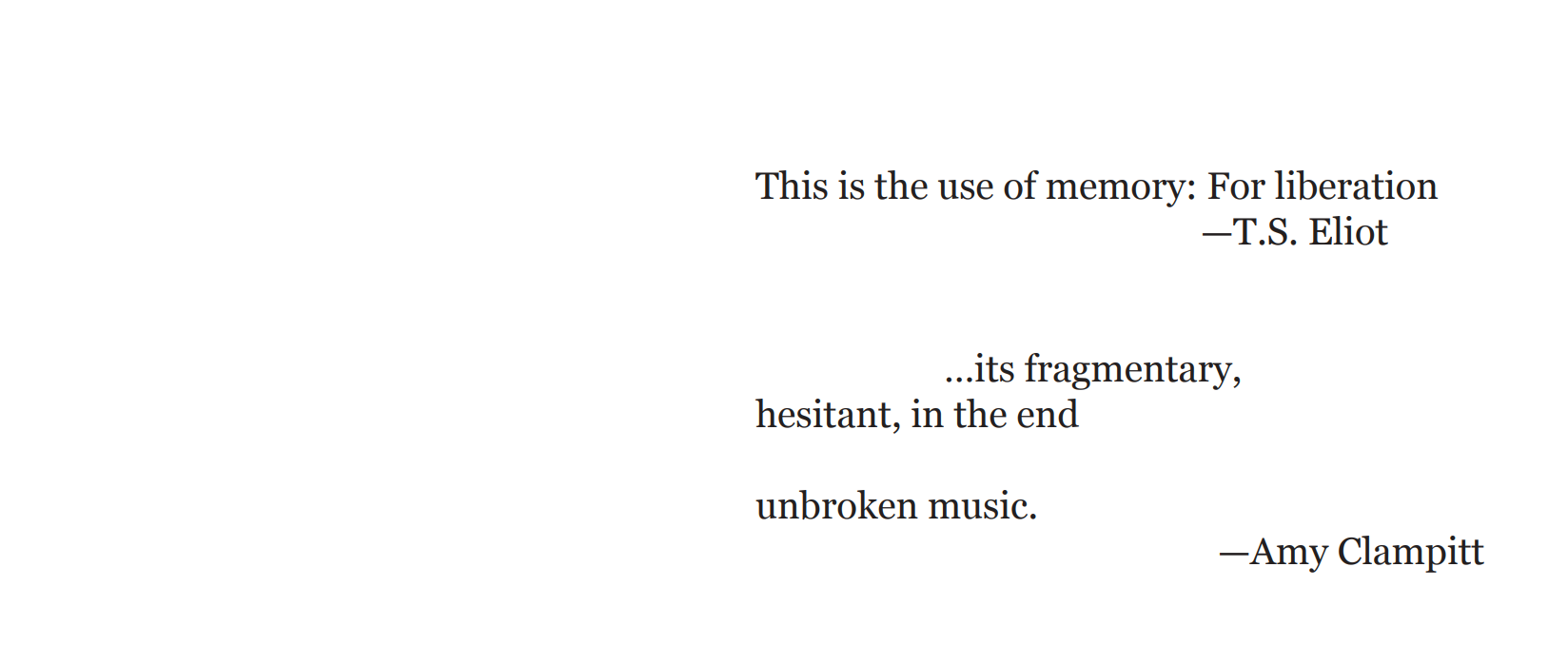Showing the Eggs Unbroken
by Austin Segrest

I found a wasp nest in a gulley off a country highway: the size and shape of a small pear, empty, breached. Cradling its whorled gray paper on the way back to the farm where I was staying, I recalled the line: “one holding the eggs unbroken.” My mind started chanting the line unconsciously, a charm to protect the fragile nest, as I walked up a steep road.
I had studied “The Explosion” (1970), a poem by the English poet Philip Larkin, in grad school over a decade earlier. It was the last line, I knew, that had come to mind. I’d slightly misremembered it: the precise wording is “One showing the eggs unbroken.” The eggs are lark’s eggs (which I’d also forgotten, despite the Larkin pun): speckled, camouflaged ground eggs, somewhat smaller than a chicken’s.
A fairly short poem, “The Explosion” has three main, integrated parts: what I might call a pastoral scene before miners enter a mine, an explosion, and a funeral service. It’s comprised of three-line stanzas (tercets), save for the last line, which hangs off on its own.
Let’s say it’s Wales in the 1960s. A gaggle of miners are walking toward the “pithead” in the morning. Horsing around with his last minutes of daylight and freedom, one miner “chased after rabbits.” He’s obviously young. The rabbits get away, but he comes back with “a nest of lark’s eggs.” After showing his colleagues the eggs, he puts them back.
Down the lane came men in pitboots Coughing oath-edged talk and pipe-smoke, Shouldering off the freshened silence.
One chased after rabbits; lost them; Came back with a nest of lark’s eggs; Showed them; lodged them in the grasses.
Then, with no little foreshadowing, they enter the mine.
So they passed in beards and moleskins, Fathers, brothers, nicknames, laughter, Through the tall gates standing open.
Evoked during the funeral service, the miners return in a final vision.
…Wives saw men of the explosion
Larger than in life they managed— Gold as on a coin or walking Somehow from the sun towards them
One showing the eggs unbroken.
It seems unlikely that the wives were there in the morning to see the eggs, or that they could have found out about them. Thus, the presentation of the eggs at the end isn’t likely shared memory or knowledge—not of the wives. But it is the miners’ shared memory, their last free, happy moments, which, writ large and gilded, their wives are mysteriously granted brief access to.
Breaking off from the tercet pattern, the final vision of the clowning miner’s gesture stands on its own. It extends away from the form, from the body of the poem, an offering tendered to the wives, to us. That the eggs are “unbroken” wasn’t emphasized before. Now the poem’s falling rhythm ends on this detail.
The young miner was getting his yah-yahs out, sure, but we have no reason to think the eggs would have been broken when he found, showed, and returned them. Nor would we expect the explosion’s hardly noticeable above-ground tremor to threaten them.
At noon there came a tremor; cows Stopped chewing for a second; sun Scarfed as in a heat-haze dimmed.
Still, the “unbroken” emphasis is moving. What finds us in need of reassurance we don’t realize we need until we’re given it is the eggs’ proximity to the miners and their violent end. Larkin’s impactful depiction of the explosion from outside rather than from inside the mine leaves us to imagine those “fathers” and “brothers” blown to bits in the darkness. How could anything, especially as fragile as an egg, as a gesture as innocent as that of the young miner, remain unscathed?
The violence adulterates everything. Inexorable, it rips the miners, their bodies and minds, from their wives. The miners’ last moments, joyful or horrific, can never be known. Yet something happens. Crossing over the boundaries of death and time and self, a minor moment returns as a major symbol. Of what? Of hope against hope, assertion in the face of the facts. Something light instead of dark, shared instead of severed, whole instead of broken. Innocence prevails. The boy with his eggs is reassuring the wives of this. We retroactively understand and trust him: his country boy gentleness, his light, sure touch. The eggs were never in danger.
My thought was to leave the wasp nest as a present for my hosts; I’d already found a fallen wren’s nest. I left the nests, bird and insect, on either side of a lamp on a small table.
In The Art of Daring (2014), Carl Philips compares poems to nests: verbal dwellings we make instinctively, sheltering assemblages. What does Larkin’s nest shelter? A story, a tragedy. Well-turned lines and stanzas. Restraint and other subtleties. Love, memory, and hope. The verb I misremembered, “showing,” is operative. More than merely hold or see the eggs, the young miner wants to share what he’s found. His gesture is then itself shared, mystically, with the wives. Like the line I recalled after all those years, this vision appears to those in need of it. It comes from afar, this intimation, this line, this tremor.
Austin Segrest teaches poetry at Lawrence University.




